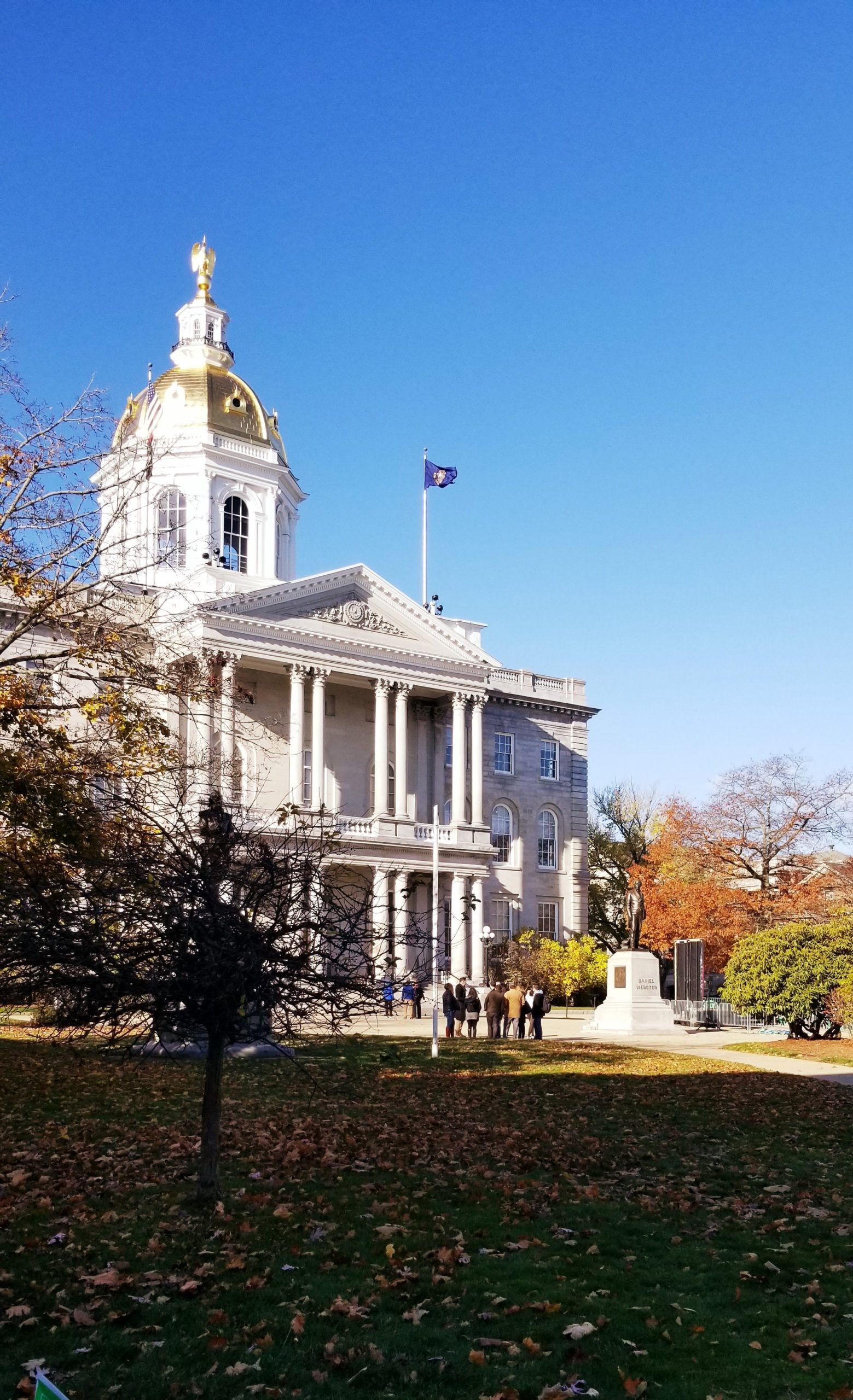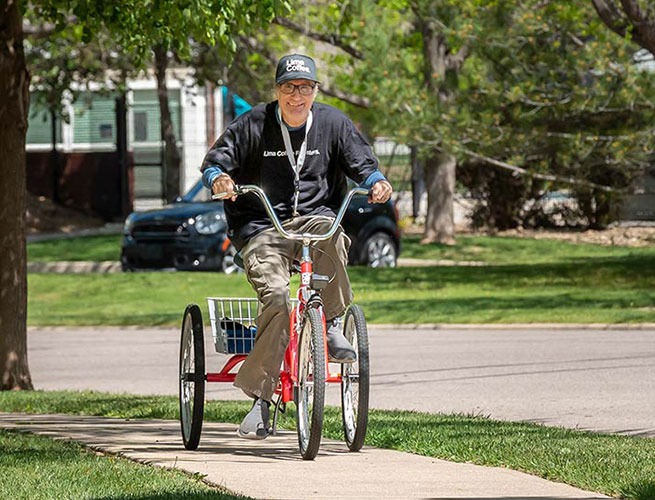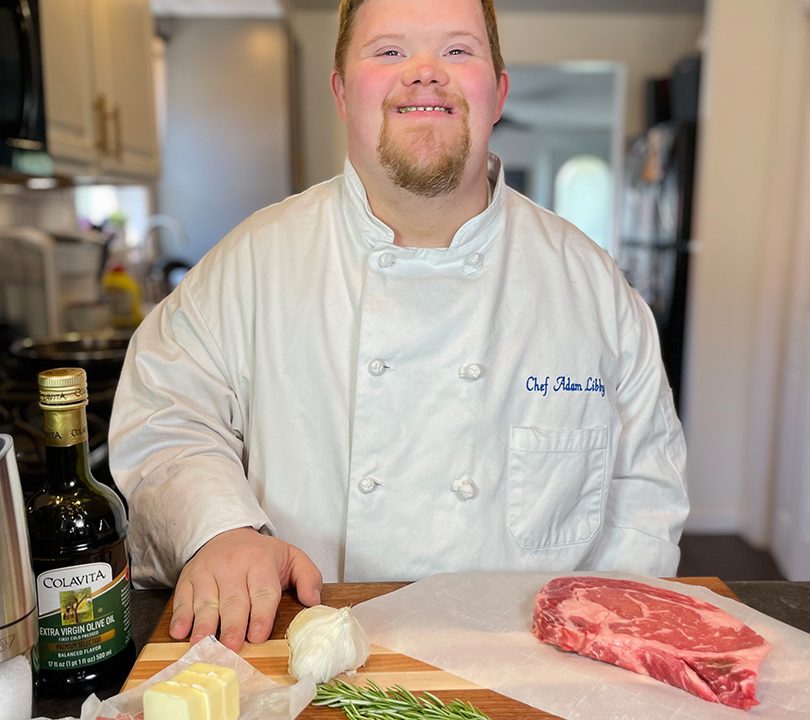November 20, 2019
By Sean Luechtefeld
First appeared here: https://medium.com/we-have-a-stake/field-notes-disability-issues-on-the-campaign-trail-in-new-hampshire-683817525d83
 Earlier this month, I had the pleasure of spending a few days in New Hampshire. The Granite State, though small, packs a powerful punch when it comes to its influence on modern presidential elections, as its first-in-the-nation primaries make it a popular spot for candidates to take to the stump.
Earlier this month, I had the pleasure of spending a few days in New Hampshire. The Granite State, though small, packs a powerful punch when it comes to its influence on modern presidential elections, as its first-in-the-nation primaries make it a popular spot for candidates to take to the stump.
I was fortunate enough to meet four candidates during my short stint in the state: former U.S. Representative John Delaney (D-MD), U.S. Representative Tulsi Gabbard (D-HI), U.S. Senator Amy Klobuchar (D-MN) and author Marianne Williamson. From intimate meet-and-greets at campaign HQ to rallies outside the state capitol in Concord, it’s not particularly difficult to spot a presidential candidate, especially with less than three months to go before voters head to the polls.
“Here we are, three decades after the passage of the Americans with Disabilities act, in an election defined by an outcry of diverse voices, and people with disabilities still aren’t part of the conversation?”
Even before I had the opportunity to ask any of the presidential hopefuls a question, a key theme on the stump was inclusion and the need for transformational change. Speaking on the campus of Franklin Pierce University in Rindge, Ms. Williamson was perhaps most fired up about inclusion, noting the need for fundamental shifts in policy and practice to ensure the voices of women, people of color, transpeople and others are heard — a shift Ms. Williamson noted could take decades. “Whether it was the abolitionists or the women’s suffragettes or the civil rights movement, we are not the first generation to have to deal with institutionalized assaults on everything we are supposed to be in this country,” said Williamson to a crowd of college students at the University’s Pizza & Politics event. [WATCH: Marianne Williamson’s full response to my question on our YouTube page]
Albeit with a more reserved rhetorical style, Representative Gabbard spoke passionately about inclusion as well. Addressing an intimate gathering of supporters at a house party in Exeter, Gabbard painted with broad brushstrokes the ways in which our country has moved too far astray from a politics of inclusion, noting the need to move away from politics of the big-money special interests toward a culture of leadership is driven by the needs of the people. In the course of just 30 or so minutes, the Hawai’i congresswoman talked about women serving in combat roles in the military, LGBT rights and reparations for African descendants of slaves.
Notably absent from the candidates’ discussions about inclusion — at least until I asked — was any mention of people with disabilities. This was immediately disheartening, as I couldn’t help but think, “here we are, three decades after the passage of the Americans with Disabilities act, in an election defined by an outcry of diverse voices, and people with disabilities still aren’t part of the conversation?”
Indeed we have more work to do, but my anguish was temporary, as each candidate replied to my questions about disability issues in a way that brought a new perspective to the discussion and exhibited a clear understanding of the ways in which our country has failed to invest deeply enough in the supports and services that enable true inclusion for people of all abilities. Although the candidates shopped short of proposing new ideas for addressing our biggest challenges — including the direct support workforce crisis — their familiarity with the challenges suggests that the message is getting through, and our presidential hopefuls are taking note of the struggles facing our community.
Perhaps the most in-depth discussion about disability came from my one-on-one interview with Representative Delaney. I started out by asking Mr. Delaney about how he would go about addressing the direct support workforce crisis if elected president, to which he immediately responded with a story about Iowa. In the Hawkeye State, recent rate cuts and the transition to managed long-term care have left disability service providers and the people they support in a bind, and it was clear Delaney understands the overall lack of investment in Medicaid. “[The workforce shortage] is a really important issue and it really gets down to our health care system. One of the main problems we have in our health care system is how we underfund so many programs,” Delaney explained. “We really need to fix Medicaid in this country, because if you don’t have good reimbursement rates, then you can’t build the provider networks.” [WATCH: My full interview with John Delaney on our YouTube page]
Delaney wasn’t the only one to exhibit an understanding of our lack of sufficient investment in the Medicaid program. At that house party in Exeter, I was joined by Michelle Donovan, New Hampshire State Director for Living Innovations, an I/DD service provider with operations across four New England states. Michelle asked Representative Gabbard how she would go about fixing the problems with Medicaid reimbursement rates, noting how New Hampshire providers’ hands are tied because of a severe workforce crisis which is attributable to “low Medicaid reimbursement rates” that cause an “inability to hire staff.”
In response, Gabbard acknowledged that the same problem exists in her home state, where low reimbursement rates are complicated by a high cost of living. Gabbard went on to explain that if elected, she would overhaul the national health care system with what she calls “Single Payer Plus,” which would ensure “every single person in our country is able to get the quality health care that they need.” [WATCH: Tulsi Gabbard’s full response to Michelle’s question on our YouTube page]
In each of my experiences hearing from these four candidates, there was so much to take in, and it was inspiring to see voters turning out, tuning in and asking tough questions on a wide array of issues. In lieu of talking about my experience in New Hampshire all day (get in touch if you want to geek out), I’ll end with my top three takeaways from my three days in Northern New England:
Candidates can talk about our issues.
It’s easy to lose sight of the fact that people running to become President of the United States are, at the end of the day, people. And because they’re people, they can’t possibly know everything there is to know about every topic. At the same time, the primary process is the time when deep, substantive discussions on the issues happen because candidates are thinking deeply about what voters care about as they attempt to differentiate themselves from those with whom they run. As a result, candidates know more than you think about the things you know a lot about…and you have an opportunity to deepen their knowledge.
Candidates will talk about our issues.
Sure, they may need to be asked — after all, they can’t pack every single issue into a short stump speech. But, just because they don’t address the issue you care about in their stump speech doesn’t mean they don’t know or care about that issue. Therefore, the best way to get them talking is to go to events at which they appear and ask. Raise your hand, go up to them beforehand or afterwards, or submit a question to the event moderator. You’d be surprised how willing the candidates are to engage with you, and if you live in an early primary state like New Hampshire, Iowa, South Carolina or Nevada, you have a significant advantage over your friends in other parts of the country.
Our issues aren’t ours alone.
That the candidates talked about inclusion in broad terms — for women, for genderqueer people, for transpeople, for Black people, for Latinx people and, yes, for people with disabilities — suggests that we’re not alone in seeking to raise the profile of these conversations. While you may be motivated by disability-related issues, there are millions of others out there who believe that our federal policies should work for everyone, not just the select few. Find those people, commune with those people and build coalitions together — you never know where it might take you.
If you are interested in learning more about how you can raise the visibility of people with disabilities and the issues facing disability advocates in the 2020 elections, visit the Included. Supported. Empowered. Toolkit or get in touch. Our team would love to support your efforts!
Sean Luechtefeld is Communications Director for the ANCOR Foundation, which seeks to build the leadership capacity of disability service providers through a variety of mechanisms, including by supercharging providers’ work to empower people with disabilities to exercise their civic rights.
First appeared here: https://medium.com/we-have-a-stake/field-notes-disability-issues-on-the-campaign-trail-in-new-hampshire-683817525d83


